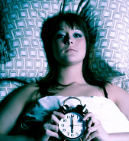 Are you getting enough sleep every night? For some people with sleep problems, this may mean spending more time awake in bed and only catching up on sleep during the early hours of the morning. For others, sleep problems involve snoozing for the entire night and even through the rest of the morning.
Are you getting enough sleep every night? For some people with sleep problems, this may mean spending more time awake in bed and only catching up on sleep during the early hours of the morning. For others, sleep problems involve snoozing for the entire night and even through the rest of the morning.
The Cause of Your Sleep Problems
Not being able to get enough hours of sleep or simply under sleeping is commonly known as insomnia. It is important to understand that people with insomnia are constantly awake every night and thus their daily cycle of work or study can also be affected by this sleep disruption. Sleep problems such as insomnia can also go out of control when one’s performance at work deteriorates. Other people suffering from insomnia also find difficulty concentrating in simple activities such as driving or operating machines and thus can also result in accidental injuries and in some extremes, even death.
The Effects of Insomnia
Advertisement
Sleep problems such as over sleeping and staying in bed for more than eight hours each night can also be a concern and thus would need the help of natural sleep aids. Our bodies need approximately eight hours of sleep each day and this amount of time allows the brain to rest and to rearrange all the information that it has processed during the waking hours. In addition, sleep also serves as the this for the body to repair any tissue damages that it may have incurred during the day. For example, white blood cells tend to produce more antibodies while sleeping, to combat foreign pathogens that may have entered our bodies. When a person sleeps for the entire night and on through the rest of the morning, the circadian rhythm of the body may also be affected.
Circadian rhythm is the cyclic clock that tells our body when it’s time to sleep or eat. This clock is largely based on the number of daylight hours each day. For a person following a regular day-shift work schedule, sleep time pertains to evenings and wake time is associated with sunrise. However, people working on the nightshift such as healthcare employees adapt a modified circadian rhythm, wherein they sleep during the day and work during the night. Nightshift jobs are thus often associated with insomnia.
According to a recent medical report published in the journal BMC Family Practice, people suffering from sleep problems such as insomnia are more likely to develop mental health problems. In a survey conducted among patients with insomnia, almost 30% of the study population was reported to suffer also from anxiety and/or depression. It is possible that the sleep problems of these patients may have increased the likelihood of developing mood disorders, thus affecting their general quality of life. In order to resolve these sleep problems, natural sleep aids are often recommended to improve sleep.
Mental Health and Insomnia
There has been some promise shown in patients suffering from anxiety and/or depression after being given natural sleep aids. Interestingly, the insomnia patients who chose not to return to their physicians for natural sleep aids for their insomnia and mood disorders appeared to stay in the same condition upon follow-up at 12 months. These patients may have been assisted with their sleep problems if only they consulted their physicians for natural sleep aids.
Advertisement
It is also important to understand that sleep problems do not pertain to those few nights that you were awake in bed or were too tired to get out of bed. Sleep problems usually last for months and even years and thus seeking the help of a physician in finding help can provide much needed assistance in day to day living.
One of the most common natural sleep aids is melatonin. Melatonin is produced in plants and animals but can also be taken as a supplemental product for those suffering from sleep problems such as insomnia. Natural sleep aids are often taken when traveling, especially when the target destination has a significant difference in time zone. Natural sleep aids can be useful in helping people get enough sleep to perform their daily activities.
(**Disclaimer: You should always consult a healthcare practitioner prior to use before using a natural sleep aid)
